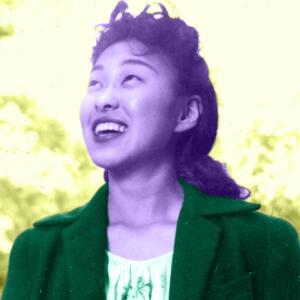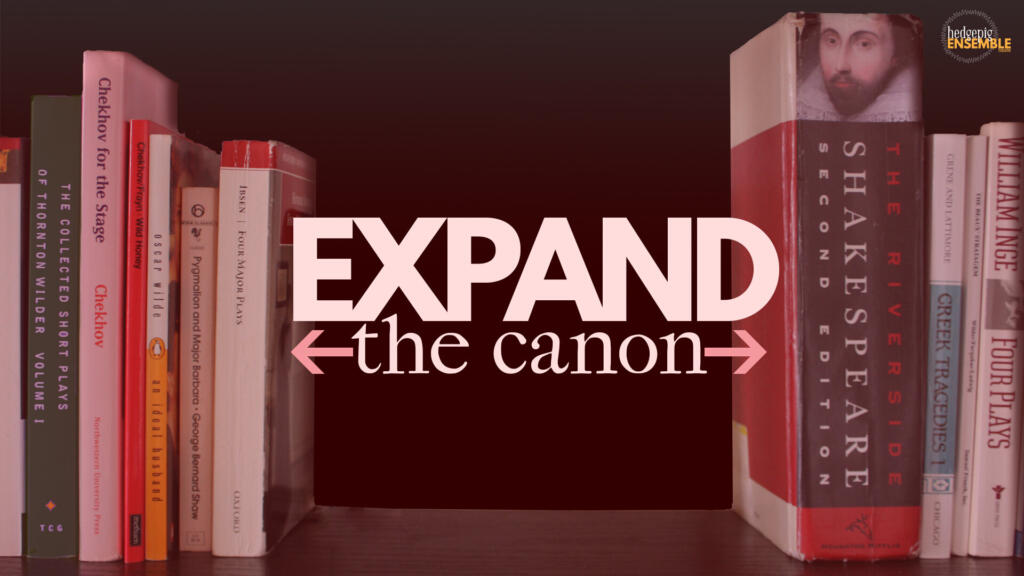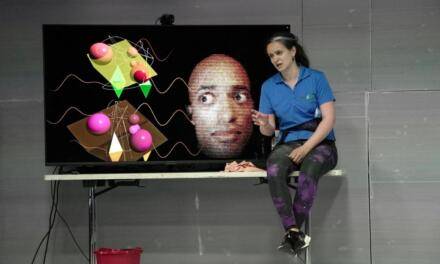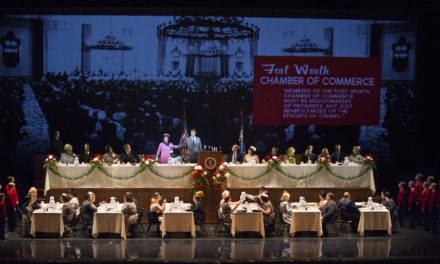Walking to the back of Sisters on Fulton, the excitement is palpable. A sizable group has gathered in the warmth of this cozy-yet-upscale eatery to enact and celebrate Hedgepig Ensemble Theatre’s mission: “By re-casting the past, we can re-shape the future.” Tonight, the reading is of Shirley Graham Du Bois’s Dust to Earth; I am thrilled to be but a small part in bringing awareness to this woman’s legacy, and find myself in camaraderie and query the whole of the inspiring night.

Shirley Graham Du Bois. PC: Hedgepig Ensemble Theatre
The reading I attended on November 14th is one of nine Hedgepig is hosting this season, the third year of their Expand the Canon initiative. A call to action for the theatre industry at large, Expand the Canon curates a list of classical plays throughout history written by underrepresented genders. Their current database includes over 5,000 of these plays; the nine selected for public release in 2022 were crafted by female-identifying playwrights of diverse identities and passions. Among them are celebrated Ukrainian author Lesya Ukrainka, Japanese-American pioneer Wakako Yamauchi, and the first recorded woman to make her living from writing, Aphra Behn. From Arrested Development-style Georgian comedy to ethereal folktale retellings, Hedgepig’s curation has it all.
And, perhaps just as importantly, the artists behind the mission are incredibly passionate about what they do.
“Our goal is to help reshape our understanding of history, so that no one has to grow up thinking they’re the first, or thinking they’re the only, or thinking they’re alone,” says artistic director Emily Lyon. To do that, Hedgepig works to “reimagine the classics by creating a legacy of storytelling with gender equity at the core.” At their founding ten years ago, that meant performing typical classical fodder—Shakespeare, Chekhov, Ibsen—from a feminist viewpoint. Several years ago, however, they began an inquiry: where were all the women? It would be far easier to see themselves in the work—to see ourselves and our world—if it was already written by these folks.
Their research began, and, in 2020, the first curation was released to the public. In the past three years, it’s already found tremendous success. Their work—collaborating with dramaturgs, literary managers, translators, and academics to form the List—has influenced the selections of Roundabout Theatre Company’s Refocus Project; RTC’s mounting of Alice Childress’s Trouble in Mind was pulled from Expand the Canon. Additionally, a partnership with Island Shakespeare Festival has seen the company committed to producing a play from the List every season for the next three years.

Wakako Yamauchi. PC: Hedgepig Ensemble Theatre
This is only the beginning. Hedgepig’s goal is to ultimately provide one play for any company to fit into their season. After all, “as we’ve seen again and again,” Lyon muses, “if we do not constantly advocate for women’s rights and autonomy, that ground is lost. If we insist the only classics worth reviving are those by white men, we are teaching ourselves and future generations that those are the only perspectives we value long term.” By understanding these women’s works as classics, we bring them with us through every historical transition; by ensuring their place in humanity’s progression, we acknowledge and understand women’s accomplishments, women’s work, and gender history and politics.
As of 2022, Hedgepig’s offerings in service of this mission are many. They host their public readings—aptly titled “Loose Canon”—in person and via Zoom, providing a community space for performance and discussion. They present panels with experts from the likes of Classic Stage, Folger Theatre, and the Roundabout. Their digital list provides easy accessibility to these too-often-buried plays. And, mayhaps most helpful, they offer consulting services to help theatre companies decipher what play out of 5,000 best fits their season.
I have personally experienced the beauty of what Hedgepig does. It is admirable work, healing work, and the stuff of necessity. I myself recommend perusing their site, and engaging with their community. It’s truly something for history.

PC: Hedgepig Ensemble Theatre
To learn more and to read the curated list, visit Hedgepig Ensemble Theatre’s website.
This post was written by the author in their personal capacity.The opinions expressed in this article are the author’s own and do not reflect the view of The Theatre Times, their staff or collaborators.
This post was written by Rhiannon Ling.
The views expressed here belong to the author and do not necessarily reflect our views and opinions.


















